News
-
 Health & Medicine
Health & MedicineStiff cellular environment links obesity to breast cancer
Obesity may directly support tumor growth by making a cell’s surroundings stiffer.
-
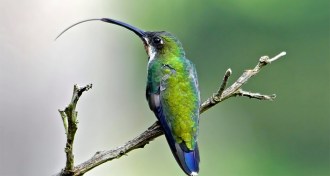 Animals
AnimalsHummingbird tongues may work like micropumps
Hummingbird tongues work as elastic micropumps instead of simple thin tubes, researchers say in latest round of a scientific debate.
By Susan Milius -
 Health & Medicine
Health & MedicineTeen e-cig users more likely to smoke tobacco
E-cigarette use is linked to later tobacco use in teens.
By Meghan Rosen -
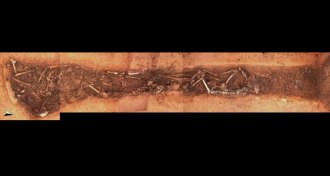 Anthropology
AnthropologyBones revive a 7,000-year-old massacre
Bones suggest Central Europe’s first farmers had an extremely violent streak.
By Bruce Bower -
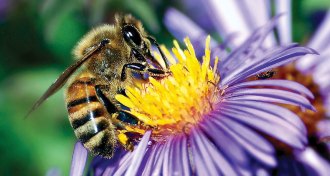 Microbes
MicrobesBacteria in flowers may boost honeybees’ healthy gut microbes
Honeybees may deliver doses of probiotics to the hive to help feed baby bees’ microbiome.
By Beth Mole -
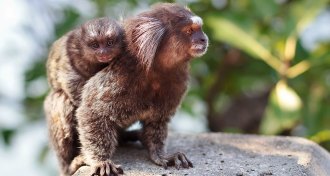 Psychology
PsychologyBaby marmosets imitate parents’ sounds
Vocal learning may work similarly in marmoset monkeys, songbirds and humans.
By Bruce Bower -
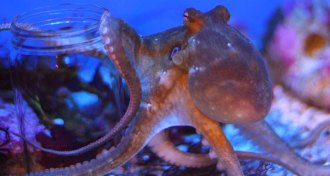 Genetics
GeneticsHow an octopus’s cleverness may have evolved
Scientists have sequenced the octopus genome, revealing molecular similarities to mammals.
-
 Particle Physics
Particle PhysicsAntimatter doesn’t differ from charge-mass expectations
An experiment with unprecedented precision finds that protons and antiprotons have the same ratio of charge to mass, which is consistent with theories but disappoints many physicists.
By Andrew Grant -
 Health & Medicine
Health & MedicineFish oil may counter schizophrenia
Three months of omega-3 fatty acids protects against psychosis for years, a small study suggests.
-
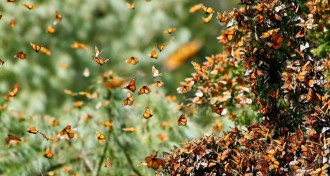 Animals
AnimalsBiologists aflutter over just where monarchs are declining
Citizen science data fuel debate over whether weed control ruined monarch habitat and whether the butterflies are failing to reach their Mexican winter refuge.
By Susan Milius -
 Psychology
PsychologyDecision tree for soldiers could reduce civilian deaths
A new, three-part decision formula may help soldiers save civilians’ lives.
By Bruce Bower -
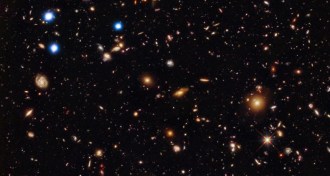 Astronomy
AstronomyYoung black holes evade detection
Supermassive black holes should be growing in the first billion or so years after the Big Bang, but astronomers can’t find them.